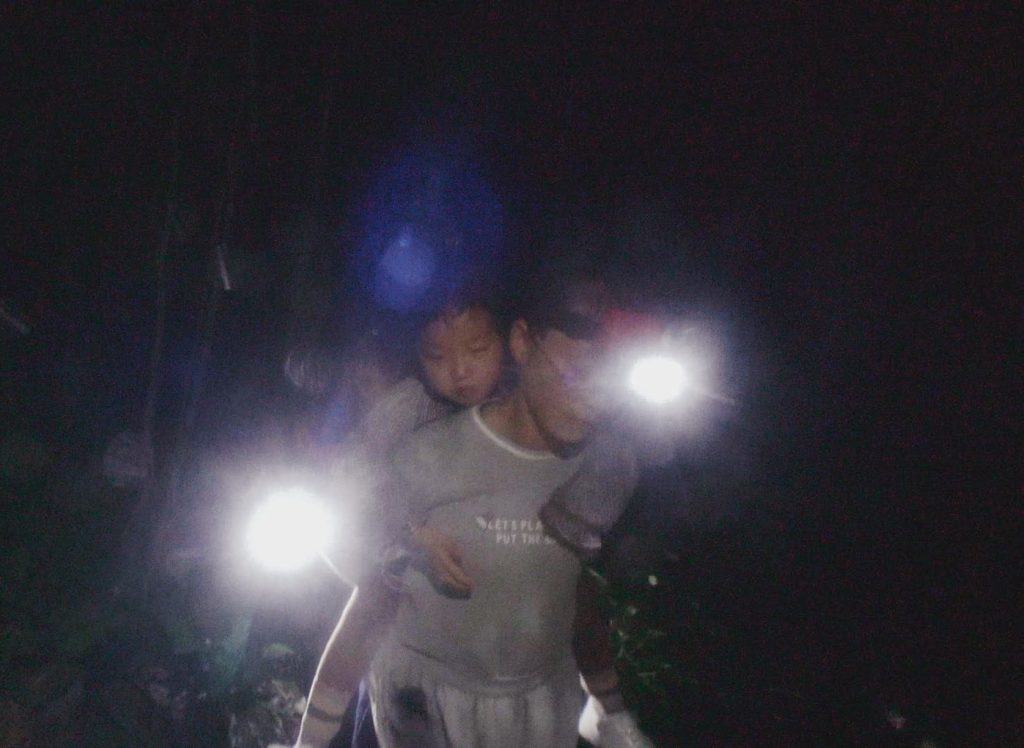Every movie is its own little miracle, but to suggest that any film from this year – or any given year – is as miraculous as Beyond Utopia is pretty disingenuous. Gargantuan epics like Killers of the Flower Moon and Oppenheimer surely took a lot of work, but neither of them suggests that the act of merely watching them could have you murdered. This is the bar set by director Madeleine Gavin, a seasoned editor-turned-director, whose latest documentary brings you within the walls of the world’s most elusive dictatorship, North Korea, and a collection of defectors who attempt to escape the country’s clutches. Through a stunning array of footage filmed in secret, Gavin gives audiences both an astonishingly modern look at the state of North Korea as well as a tour through the extended, treacherous escape route one must endure to leave the country.

It’s important to preface that Gavin’s documentary is an achievement for merely existing. There’s no denying that what she has documented here is revolutionary, a monument against the horrific North Korean regime that will likely educate and inspire others to defect as well. In addition, lives were risked to make this film. Many times, we are told of all the ways people are punished for disobeying the country’s policies, from public executions to covert torture operations. In any number of ways, the filmmakers or their associates could have suffered this fate, but they knew the risk was worth the reward. It is important to acknowledge this upon any further criticism of the film because, despite this writer’s fervor for analysis, nothing surpasses human lives and their continued safety. Regardless of where you fall on this film, its very creation is an immeasurable act of courage and heroism.
It is quite strange, then, that Gavin struggles to imbue the film with this same urgency, at least in the first half. Things begin simply enough: we are introduced to the film’s key players, including Sengeun Kim, South Korean pastor by day and liaison to North Korean defectors by night, as well as Soyeon Lee, a previous defector and mother whose son is now crossing the border himself. However, interspersed across their backstories are interviews with other defectors, including New York Times bestselling author Hyeonseo Lee, and their insights into the deep brainwashing behind North Korea’s utopian mindset. Much of it is driven by the aforementioned harrowing smuggled footage as well as other informative archival material, though it is very choppily sewn together and too briskly edited for any atmosphere to pervade. At one point, Gavin herself narrates a clunkily-inserted history lesson behind North and South Korea’s split, surely included out of fear audiences needed the full context of the country’s history. However, you push through it because it isn’t why we’re here. This is merely the calm before the storm.

Kim is soon informed of the Ro family, a five-person family unit composed of a couple, two daughters, and a grandmother. They have so far crossed the border into China, but need Kim’s help to get the rest of the way, including through Vietnam, Laos, and Thailand. Though the film continues cutting back and forth between its two modes, the Ro’s reveal themselves to be the film’s centerpiece by the hour mark. After escaping China, Kim and the family descend deep into the jungles of Vietnam in hopes they won’t be caught by the country’s border patrol. The filmmakers render the Ro’s in night vision and, somehow, edit what was surely impossible footage to capture into a more-than-coherent, suspenseful series of sequences. It’s incredibly visceral in the way you expected this film to be from the very start. However, Gavin goes even further to hold interviews with the Ro’s throughout their journey, some of whom still proudly hold Kim Jong-Un as their powerful savior and ruler. It is the country’s psychological decay on full display, but never in a way that feels manipulative or heightened with shock value. It simply who they are and what they believe, which makes it all the more unsettling.
It’s clear that the Ro’s should have been the stars of Beyond Utopia, yet Gavin frequently and inexplicably interrupts their gripping story with more micro-vignettes on North Korea’s abominable acts. However educational or novel, these continued segments stop the film’s suspenseful pacing in its tracks in a way that is remarkably frustrating. The talking heads simply pale in comparison to the Ro’s, or even to Lee, whose son is captured crossing the border. As Lee struggles to get a semblance of whether or not he will be kept alive, her despair is palpably realized through a series of harrowingly dry phone calls. “We were born in the wrong country,” she wails on the phone. This is, effectively, the documentary’s emotional core in a nutshell, the paradoxical horror and triumph of those attempting to escape conditions that they had no choice but to endure. This isn’t achieved through sloppily compiled soundbites but by the people living it the moment the camera is rolling.

At two hours, it feels like Beyond Utopia could have been a slimmer and more efficient exploration of its themes if it knew its own strengths. There’s a version of the film that is simply the Ro’s and their harrowing journey, perhaps juxtaposed to Lee’s story before the Ro’s dire circumstances truly begin. It’s impossible to take away from the bigger picture of what Gavin and her team have achieved, but it’s frustrating to recognize that, cinematically, it could have been something far greater in execution.
Beyond Utopia is now playing in select theaters courtesy of Roadside Attractions.
[youtube https://www.youtube.com/watch?v=bN2nwkJhAY8]
Madeleine Gavin's incredible achievement in activism and documentary cinema is marred by an uneven structure and sloppily editing.
-
6.5
-
User Ratings (0 Votes)
0

Larry Fried is a filmmaker, writer, and podcaster based in New Jersey. He is the host and creator of the podcast “My Favorite Movie is…,” a podcast dedicated to helping filmmakers make somebody’s next favorite movie. He is also the Visual Content Manager for Special Olympics New Jersey, an organization dedicated to competition and training opportunities for athletes with intellectual disabilities across the Garden State.






